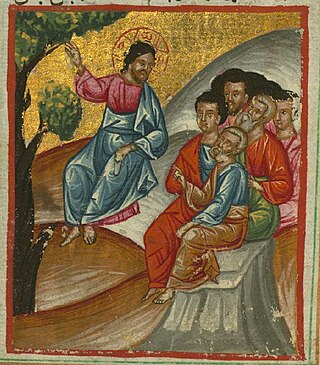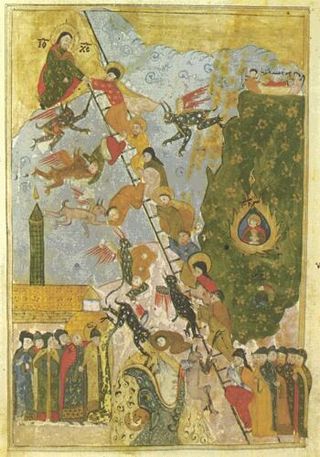Augustine: "However you may understand these words, Philip's answer will suit. You may read it either as affirmatory, Something good can come out of Nazareth; to which the other says, Come and see: or you may read it as a question, implying doubt on Nathanael's part, Can any good thing come out of Nazareth? Come and see. Since either way of reading agrees equally with what follows, we must inquire the meaning of the passage. Nathanael was well-read in the Law, and therefore the word Nazareth (Philip having said that he had found Jesus of Nazareth) immediately raises his hopes, and he exclaims, Something good can come out of Nazareth. He had searched the Scriptures, and knew, what the Scribes and Pharisees could not, that the Saviour was to be expected thence."
Alcuin: "He who alone is absolutely holy, harmless, undefiled; of whom the prophet saith, There shall come forth a rod out of the stem of Jesse, and a branch (Nazaræus) shall grow out of his roots (Isaiah 11:1). Or the words may be taken as expressing doubt, and asking the question."
Chrysostom: "Nathanael knew from the Scriptures, that Christ was to come from Bethlehem, according to the prophecy of Micah, And thou, Bethlehem, in the land of Judah,—out of thee shall come a Governor, that shall rule my people Israel (Micah 5:2). On hearing of Nazareth, then, he doubted, and was not able to reconcile Philip's tidings with prophecy. For the Prophets call Him a Nazarene, only in reference to His education and mode of life. Observe, however, the discretion and gentleness with which he communicates his doubts. He does not say, Thou deceivest me, Philip; but simply asks the question, Can any good thing come out of Nazareth? Philip too in turn is equally discrete. He is not confounded by the question, but dwells upon it, and lingers in the hope of bringing him to Christ: Philip saith unto him, Come and see. He takes him to Christ, knowing that when he had once tasted of His words and doctrine, he will make no more resistance."
This page is based on this
Wikipedia article Text is available under the
CC BY-SA 4.0 license; additional terms may apply.
Images, videos and audio are available under their respective licenses.














